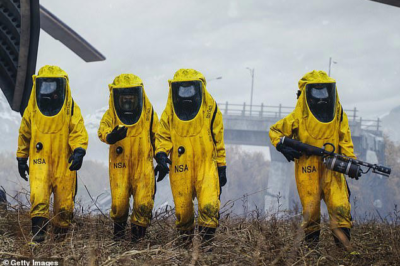
🔹 Camp Hill virus, a newly discovered member of the henipavirus family, has been found in shrews in Alabama, raising concerns about a potential future pandemic.
🔹 The virus is related to Nipah and Hendra viruses, which have high fatality rates and cause severe respiratory and neurological issues.
🔹 Public health experts are divided—some believe it poses a pandemic threat, while others argue it is too early to panic.
Could Camp Hill Virus Become the Next Global Threat?
Researchers from the University of Queensland identified the Camp Hill virus in 2021 but only recently published their findings. This virus belongs to the henipavirus family, known for its deadly effects on humans. The World Health Organization (WHO) has listed henipaviruses as potential pandemic threats.
Why Are Experts Concerned?
High Mutation Potential – Viruses can evolve rapidly, potentially increasing their ability to infect humans.
Similar to Deadly Henipaviruses – Related viruses like Nipah and Hendra have mortality rates as high as 40–75%.
Possible Respiratory Transmission – If the virus becomes airborne, it could spread faster, like COVID-19.
What Do Scientists Say?
Dr. David Dyjack (Public Health Expert) calls it a major concern due to its potential to mutate and infect humans.
Dr. Donald Burke (Epidemiologist) believes it is unlikely to cause an epidemic at this stage.
Dr. Adam Hume (Virologist) warns that while the virus can infect human cells in theory, its actual impact remains unknown.
How Does It Compare to Nipah & Hendra?
| Virus | Transmission | Symptoms | Fatality Rate |
|---|---|---|---|
| Nipah | Bats to humans, possibly airborne | Brain inflammation, respiratory distress | 40–75% |
| Hendra | Horses to humans | Pneumonia, brain swelling | ~60% |
| Camp Hill (Potential) | Possibly from shrews or other animals | Unknown, but could affect kidneys, lungs, and brain | Unclear |
Should We Be Worried?
No human cases yet – Camp Hill virus has only been found in shrews so far.
Surveillance needed – Experts call for increased monitoring to track possible human infections.
Preparedness matters – The US currently lacks vaccines or specific treatments for henipaviruses.
Final Thought
While some experts believe Camp Hill virus could be a future pandemic risk, others caution against unnecessary fear. Ongoing research is crucial to determine whether this virus poses a real threat to humans. For now, public health vigilance remains key to preventing another global health crisis.








































Leave a Reply